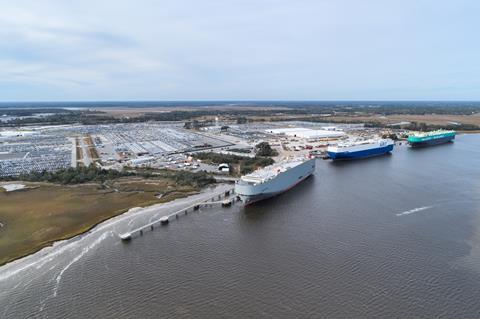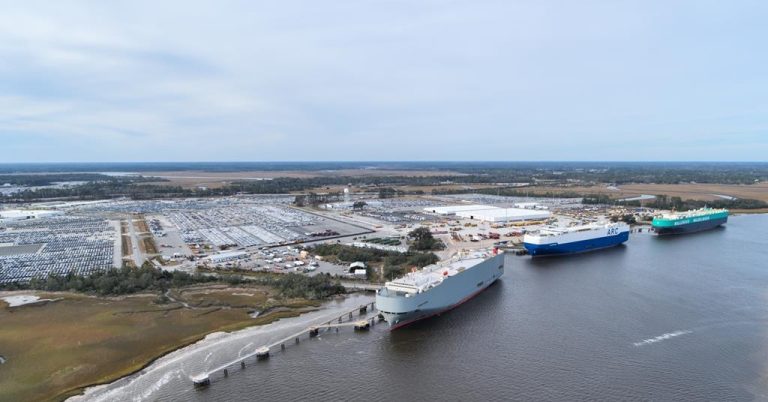In the same year, Brunswick and its neighboring port, Savannah, handled just over 651,500 completed vehicles, second only to the Port of Baltimore.

Colonel's Island Terminal serves 23 automakers and 17 heavy equipment manufacturers. The top five passenger car manufacturers are Mercedes, Hyundai, Kia, Nissan, and GM. The major equipment manufacturers using this terminal are Hyundai, John Deere, Caterpillar, Wirtgen, and Hamm.
Looking to the future, Georgia Ports Authority (GPA) said the $262 million investment and capacity expansion at Colonel's Island Terminal will make it the premier RO-RO facility in the United States. GPA President and CEO Griff Lynch said GPA's strategy is to centralize all RO-RO cargo at Colonel's Island Terminal, with the Port of Savannah concentrating on container trade. That's what it means. This year, the authority and its terminal operators plan to expand the annual vehicle capacity of the Colonel's Island terminal to 1.4 million vehicles.
The expansion will include a warehouse near the dock for handling vehicles and machinery. The terminal has three new warehouses, with more processing centers expected to be completed later this year. Also included are plans for 122 acres of new RO-RO cargo storage space, a fourth RO-RO berth in the engineering stages, and a new depot. GPA said the expansion will allow automakers to meet growing import and export needs, as well as provide flexibility in storing and moving vehicles during seasonal cycles. GPA said it plans to invest $4.2 billion over the next 10 years.
“At current growth rates, the Port of Brunswick is poised to become the nation's busiest RO-RO cargo gateway,” Lynch said. “We are ready to accommodate this growth with capital improvement projects underway and land available to expand on demand.”
The neighboring container port of Savannah, also managed by GPA, saw a 16% decrease in the number of TEUs processed. The port handled 4.9 million TEU in 2023, which GPA said was due to inflation and higher interest rates, and weaker consumer spending, which increased warehouse inventories.


